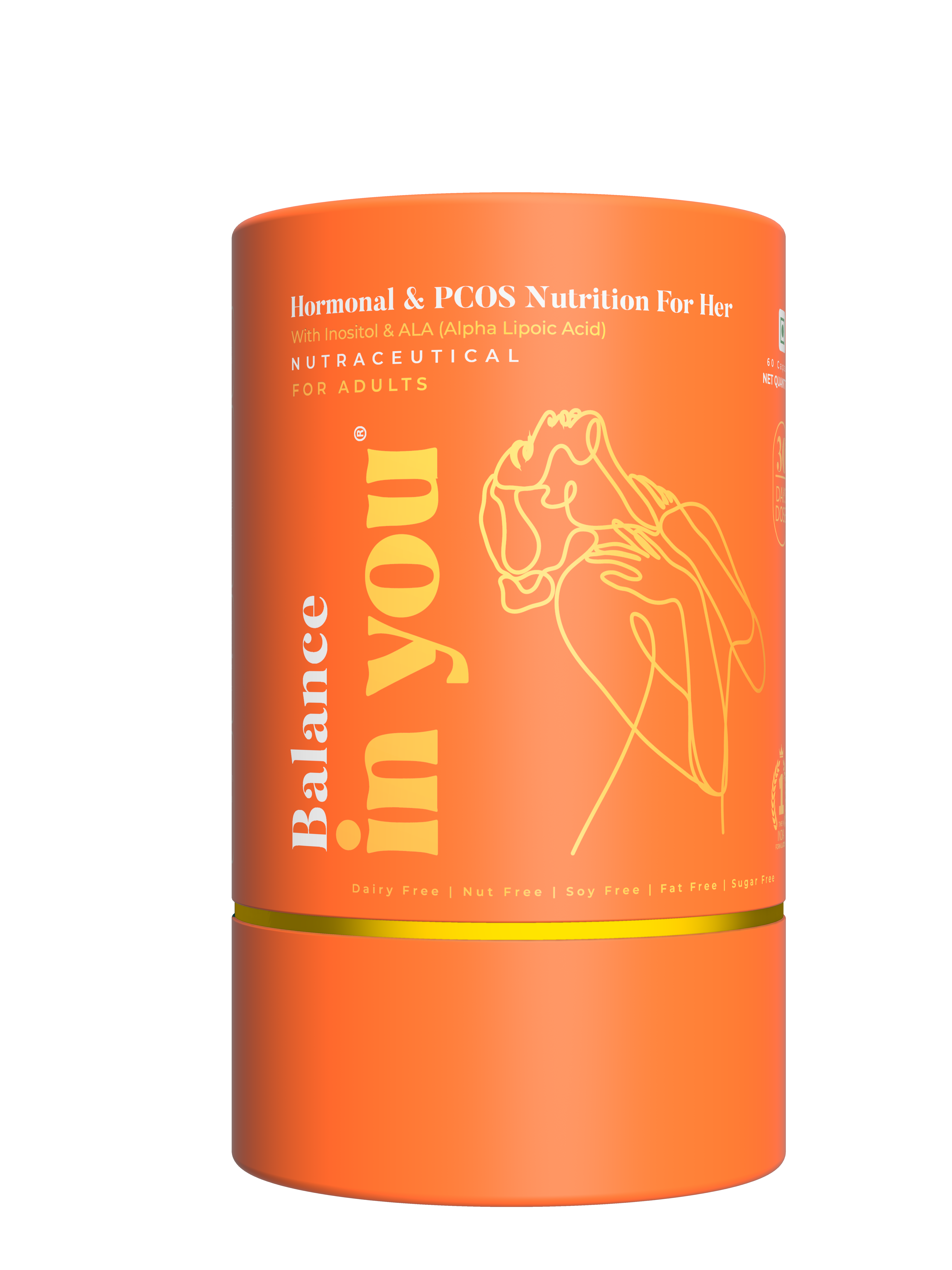- products
- Science
- wellness journal
- About Us
- Faqs
- Sustainability
- Contact Us
- Self Test
- English

With an alarming uptick among young adults the world over who’re struggling with hormonal imbalances of various kinds, it comes as no surprise to witness a growing concern about what contributes to the condition, which in turn leads to gnawing issues like infertility in both men and women. Speaking of which, as per a report on National Institutes of Health, “Infertility is a serious health issue worldwide, affecting approximately 8%–10% of couples worldwide.” The report further suggests that approximately 60–80 million couples suffer from infertility every year worldwide, probably between 15 and 20 million (25%) are in India alone.
This brings us to a rather significant question: What exactly causes the condition, and are some of the biggest tell-tale signs of hormonal imbalance?
Before we get these, let’s get to see what the term actually means. Defined by Cleveland Clinic, “Hormonal imbalance happens when you have too much or too little of one or more hormones — your body’s chemical messengers. It’s a broad term that can represent many different hormone-related conditions.”
Hormonal imbalance symptoms
While hormonal imbalances signify an upheaval in the way your hormones react, there are multiple layers and factors that contribute to the symptoms. Some of the most common symptoms include:
1. Chronic fatigue or regular bouts of exhaustion, in spite of adequate sleep and dietary intake.
2. Irregular bowel movements, constipation or diarrhea.
3. Unexplained fluctuations in body weight—weight gain and loss.
4. Increased dryness of the skin and hair.
5. Frequent urination.
6. A heightened sensitivity to external temperatures.
7. Psychological upheaval: recurring episodes of mood swings, anxiety and depression.
While the above-mentioned conditions aren’t gender-specific, there’s a strong possibility of hormonal imbalances affecting women and men differently, through hormonal changes, induced by an underlying issue, that are gender-specific.
Common hormonal imbalance symptoms in women
1. Infertility
2. Hot flashes
3. Reduced interest in sex
4. Irregular periods
5. Vaginal dryness
6. Fibrocystic breasts
7. Early menopause
8. Acute acne
9. Insomnia
10. Uterine fibroids
Common hormonal imbalance symptoms in men
1. Infertility
2. Erectile dysfunction
3. Loss of interest in sex
4. Excess loss of hair
5. Loss of muscle mass
The above-mentioned information sheds light on one common conditions of hormonal balance, gender notwithstanding, that causes infertility.
Ovulatory dysfunction, gives rise to conditions like PCOS, which are known to be strong contributors of infertility. This is largely because several hormones are said to work in harmony inside of a woman’s body, to ensure seamless flow of a menstrual cycle. What usually causes an imbalance—or leads to infertility—is when one of the hormones goes out of whack. hormones that affect one’s chances at conceiving.
On that note, let’s take a look at female hormones that play key roles in determining the strength of fertility levels.
• Anti-mullerian hormone (AMH)—responsible for maintaining the body’s immature eggs. An imbalance leads to troubles in the fertilisation of the egg.
• Oestradiol—responsible for maintaining the reproductive system.
• Luteinizing hormone (LH)—an imbalance of LH can lead to fertility, low libido and irregular periods.
• Follicle-stimulating hormone (FSH)—responsible for healthy reproduction.
• Prolactin—known to regulate menstrual cycle. An imbalance causes low sex drive, menstrual and fertility problems and erectile
dysfunction.
• Progesterone—known to trigger the uterine lining (endometrium) to prepare for a fertilised egg. It also keeps the uterine muscles from contracting so the egg is not rejected.
• Thyroid hormones—responsible for the regulation of metabolism.
Since diet has an important role to play, it only makes sense to keep tabs on your regular meals and watch your intake if you sense trouble related to fertility issues. Since foods with increased sugar levels and trans-fat ( packages foods, pasta, spaghetti, soft drinks and potatoes) can lead to bigger issues. Include progesterone-rich foods like nuts, avocado, leafy vegetables and beans to your daily diet. Meat eaters must include salmon, organic beef and fatty fish.
When to test for hormonal imbalance
Infertility stems from myriad underlying issues, hence prior consultation with an endocrinologist is recommended to get to the root of the matter or for those who’ve been trying to conceive since the past 6-12 months, or have been struggling with irregular menstrual cycle, PCOS or a thyroid condition. While you can also get a home test done, it is best suggested that you make that visit to the clinic to be doubly sure of the results.
Author:

Pooja
Reviewed By:
Dr. Indraneel
Source:

Pooja


Embrace your body, ignite intimacy, and unlock boundless pleasure.
Related Products
Get 10% off
on your first order
You’ll also get dibs and a heads up on any sales or product launches.










